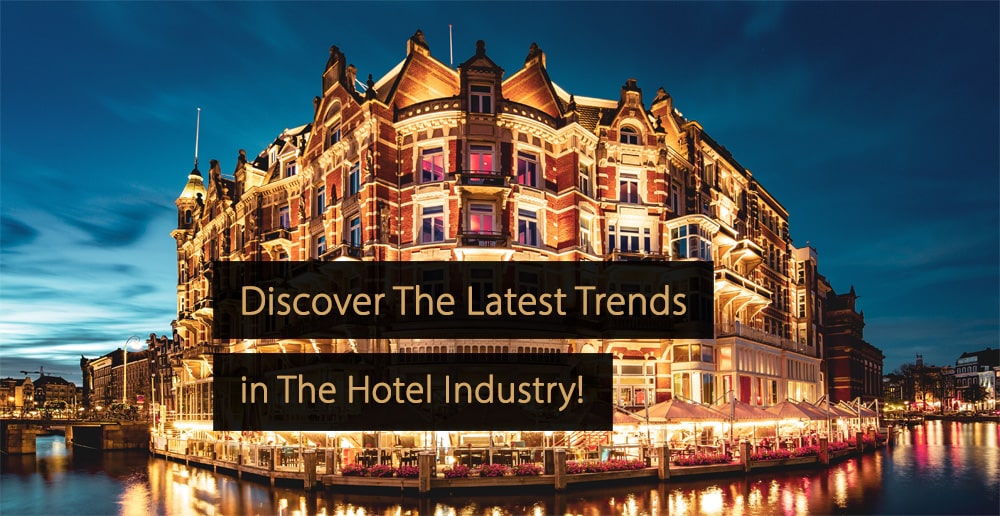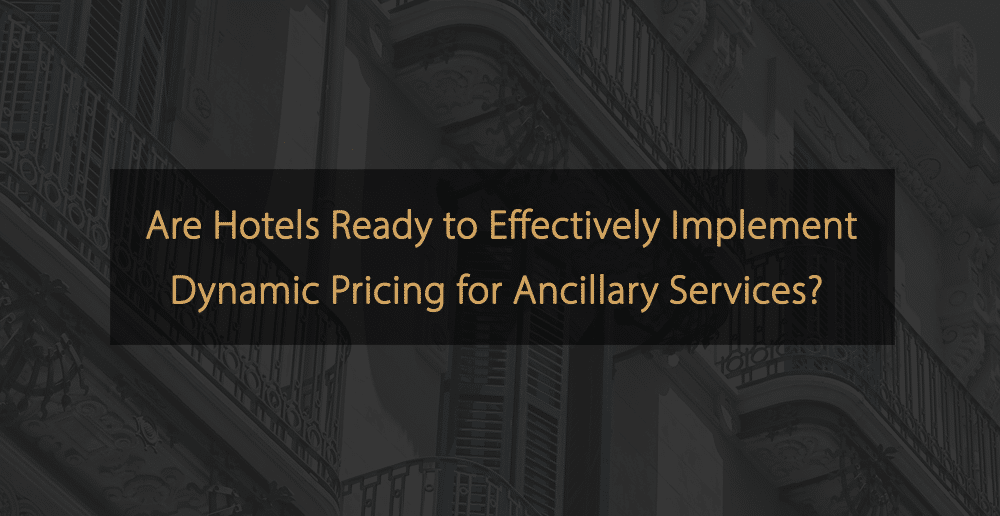Question for Our Hotel Marketing Expert Panel
What digital marketing tools (e.g., software, platforms, etc.) will be essential for hotels in 2022?
Industry Expert Panel
Our Industry Expert Panel exists out of professionals within the hospitality & travel Industry. They have comprehensive and detailed knowledge, experience in practice or management and are forward-thinking. They are answering questions about the state of the industry. They share their insights on topics like revenue management, marketing, operations, technology and discuss the latest trends.
Our Marketing Expert Panel
- Adele Gutman – Culture and Guest Experience Expert, Hospitality Reputation Marketing Podcast
- Luminata Mardale – Director Of Marketing And Business Development, Vienna House
- Thomas Dieben – Founder, Becurious
- Tim Kolman – Commercial Strategy Expert, three&six
- Jolien Alferink – Hotel Marketing Consultant, Orange Hotel Marketing
- Amy Draheim – Owner, ABD Creative
- Michael Markarians – President, Tee Hospitality
- Reshan Jayamanne – Digital Marketing & Sales Strategist, Bnb Optimized
- Alessandro Inversini – Associate Professor of Marketing and Director of the Institute of Customer Experience Management, Ecole hôtelière de Lausanne
- Jacopo Focaroli – CEO & Founder, The Host
- Nicole Sideris – Founder & Prinicipal Consultant, X Hospitality
- Stephanie Sparks-Smith – Founder, Cogwheel Marketing
- Grazia Dell’Aquila – Hospitality Consultant, IAMGRAZIA
- Natasha Robertson – Independent Consultant, Ecole hôtelière de Lausanne
- Tamie Matthews – Revenue, Sales & Marketing Consultant, RevenYou
- Ask Our Panel a Question
- Join Our Expert Panel
“Because I have spent the last 20 years in a role that integrated and aligned Sales, Marketing, Revenue and Guest Experience/Reputation, I realize that what I consider a “digital marketing tool” may be controversial for some strictly marketing or strictly-revenue professionals, but hear me out.
If you are not earnestly working every day to increase true loyalty as represented by your Net Promoter Score (NPS), your marketing, sales, and revenue management results are being held back from their fullest ROI.
Decision-makers are going to look at your reviews and the more 5-Star reviews you have and the fewer 3s, 2s, and 1s you have, the better your conversions, your retention, and your brand’s perceived value will be. The key to any great relationship is Communication. Therefore, the tools you need to have and implement well are those that will promote excellence in communication. In addition to all the tools that every hotel should already have, like CRMs, guest engagement messaging, and apps to help elevate rapid service and reduce friction, here are some tools you should consider adding:
- A desk-free employee communication tool: this allows for all employees to access current information, best practices, inspiration, vision, and goals from the leadership, plus enables them to share successes and challenges both laterally and to decision-makers. This promotes a culture of caring, collaboration, and continuous improvement. Nudge and BeeKeeper would be two examples of this technology that every hotel should add to their tech stack.
- A reservation CoBot: there is nothing in hospitality that makes my heart sink faster than being transferred to a corporate office reservation center. Give your in-house reservations team the assistance they need in getting all the options and calculations done for them by an AI bot, so that they can quickly focus on personalized, gracious hospitality only. Look at AskSuite or HotelResBot as examples.
- Track your numbers and collaborate with your team for solutions: yes, you can track your scores by yourself, but Reputation Tracking tools are so affordable now and efficiency is key, so why not help your team track feedback and improvements when there is so much revenue riding on those scores? More than just the numbers, most tools will offer a way to communicate and collaborate with you on finding the root cause of issues and fixing them so they won’t recur. When your NPS rises, so will your profitability.”
“Marketing teams and agencies use many different types of marketing software, from marketing analytics tools to SEO dashboards, asset managers, landing page builders, marketing automation tools, and many others.
Pardot (B2B marketing automation by Salesforce) offers a marketing automation solution that supports the needs of B2B organizations with features such as streamlined lead management, email marketing, robust ROI reporting, and more. It’s a great tool for automating a lot of inbound marketing efforts with automated workflows, autoresponders, etc.
HubSpot Marketing boasts features like marketing automation with smart content, content creation tools with SEO strategy built-in, custom event triggers and reporting, website traffic analysis, and more.”
“To increase the possibility of receiving direct reservations, an effective hotel website is key. To keep the website up-to-date and to capitalize on the benefits of SEO, working with a specialised Hotel CMS is essential. As an example, incorporating the Google image file format WebP will result in an increase in page speed and therefore a better indexation and conversion. Also, ask your webmaster about your website’s page experience as the Google Core Web Vitals will have influence over your hotel’s website indexation.
Rich content like videos and high-quality photos should give your future guests a tempting impression. Offer clear booking benefits, the possibility of having a discount when subscribing to your newsletter and provide a seamless booking process.”
“Automation and Optimization! During the pandemic, everyone in hospitality needed to learn how to do more with less, both in the case of humans as well as financial resources. This didn’t just apply to the hospitality corporate office or property levels, but it also applied to digital marketing agencies.
Much like with pricing optimization and automation, using data and a revenue management platform, plus optimizing paid search by using data directly from your Google Ads account and working with an automated, optimization platform can ensure that your property is optimizing your keyword and bid strategies 24/7/365 using fewer resources at a lower cost!
But wait – I know you are thinking that digital marketing needs a human marketer to be successful. And I do not disagree with you! However, there are some digital marketing campaigns that can easily be automated by a platform like three&six’s PATHWAY, which will free up the resources to be more strategic in other campaigns and channels. Elevate your digital marketing by automating where you can!”
“In order to win market share while demand is not yet back to pre-pandemic levels, “standing out” will be more important to hotels than ever before. Starting with a strong brand and a compelling brand story needs to translate into marketing tools like an attractively designed website, catchy video and photography content, virtual tours etc., to deliver the brand story you wish to convey.”
“It wasn’t so long ago that marketers had to convince hotels that they needed mobile websites. In more recent years, we convinced hoteliers to add mobile booking engines, or at least make their booking engines mobile friendly.
Today, adopting new technology continues to be incredibly important. The next frontier for hotels? SMS texting.
We need to be accessible to guests in a way that works for them, and that means accessibility via smartphones. Text messaging not only works, it yields 80% open rates.
If you need to get a message to your guest during their stay, text messaging is your best bet. In fact, text messaging could revolutionize the concierge function at your hotel if it hasn’t already. Access to a virtual concierge can really enhance the guest experience on property, whether it’s a request for additional towels or a dinner reservation that needs to be booked, particularly in a post-pandemic world where human interactions have become a ‘nice to have’ but not the norm.”
“The future of travel isn’t crystal-clear, but I predict a global travel boom in the near future. According to the U.S. Travel Association, upwards of half of Americans have set funds aside in the past year, and many have said they are ready to spend some “fun money.”
As more countries lift travel restrictions and people finally venture out and start spending more on experiences, the travel industry should reap the rewards. I also think remote work offerings and increased opportunities for business travel will likely fuel the boom.
Marketing channels for business travellers and vacation travellers are nothing new. Here are some of the trends that I think would be worth experimenting with:
- Booking via Voice: more than 20% of people use voice search. Creating a voice-friendly listing is crucial for your future success.
- Pre-Booking VR: the virtual reality industry is expected to expand from less than $5 billion in 2021 to more than $12 billion by 2024. Within the hospitality market, the technology allows prospective travellers to explore their accommodation and the surrounding area before booking a trip.
- Mobile-friendly services: when travellers board a flight or arrive at a hotel, they want an easily accessible, customer-focused experience. Consumers bank, shop, and order dinner through their smartphones and tablets, and they’re beginning to expect a mobile-friendly experience everywhere they go, including hotel rooms and aeroplanes.
- Sustainable stays: to be in line with the Paris Climate Agreement, the global hotel industry will need to reduce its carbon footprint by 90% by 2050. This is not only good for the planet but also good for business. Consumers (particularly younger generations) are beginning to demand sustainability from the brands and organizations they spend money on. An eco-friendly approach to hospitality can help you satisfy your current guests, expand your reach, and compete in the changing market.”
“Most marketing agencies will recommend the next shiny object or software that will ‘triple your traffic’ and so on. I’m not going to feed you popular opinion because 99% of the time, it simply doesn’t work. The #1 thing that you MUST do as a business in 2021 leading onto 2022 is to leverage your data.
Hotels can begin to do this today as follows:
- Set up analytics correctly. One great (and free) example is using Google Analytics correctly to track the data flowing in and out of your website.
- Once Google Analytics is correctly installed on your website, you want to install pixels from ALL advertising channels (yes TikTok and Snapchat included) onto Google Tag Manager to collect data on autopilot for every person who visits your website, allowing you to advertise anywhere profitably should you need to in the future.
- Learn to interpret data from Google Analytics and make decisions based on DATA (not guesses). This means understanding where your customers are coming from (social platforms, email, google, referrals, etc.) and what decisions your customers are making on each page.
- Optimize your landing pages/website/checkout pages according to your data insights.
- Once you have optimized your website based on data, and assuming that you have had your pixels installed for a while with consistent website traffic, you can use your pixel data to target your exact specific customers anywhere they may be online.
- If your pixel audience is sabotaged due to ISO updates, keep your pixel open and run ads to a wider market (less targeting) to understand who resonates with what you’re putting into the marketplace as an offer and optimize from there.
The main takeaway from the list above is that data is our greatest friend – and most of us have more data on our prospects than we realize.Knowing how to use that correctly (and ethically) is the greatest revenue booster hidden within a business. Yes, there are several platforms that can collect this data, but for 99% of businesses, a free tool like Google Analytics works really well.”
“I think a tool such as Hoxell, for customization and personalization, will prove invaluable for hotels. Additionally, advanced CRM for medium-size properties will also be a must-have in order to enhance customization and co-creation.”
“A more personalized, automated and mobile-oriented guest experience will need the support of live communication (surveys, preference forms, chatbots), Big Data, Analytics and ultimately, AI.
I might sound contrarian, but I feel that while Virtual Concierge apps and Automated Check-ins are cost-effective and useful for some, they may be less popular or successful among others in terms of personal touch and deeper Guest Relations, i.e., for luxury hotels especially.”
“Post pandemic there will be a strong need for hotels to become more digital. Guests want fast and effective ways of service with minimal interaction and touchpoints. Hotels will need to evaluate their operations and solutions to better streamline their efficiency and lose the artificial barriers. Having a digital door locking system will no longer be a “want”, but a “must”. The additional handling and sanitisation of door locking cards will be a thing of the past. Guests will expect a touchless journey as much as possible.”
“Software such as Demand360 or Kalibri will surely be on the list of digital marketing tools essential for hotels in 2022, along with the Revenue Management tool, Koddi for branded hotel metasearch and sponsored listings. I think there’ll also be a greater need for enhanced social media platforms for scheduling and paid ads.”
“The hospitality sector needs to provide new digital technologies. Digital is replacing classic signage with LEDs and videos to show exclusive offers and target audiences. Digital also means sustainability as it reduces the impact on the environment (compared to paper costs for example).
Digital also supports personalization because it allows hotels to make unique experiences for the guests with new technologies such as CRM, PMS and special software that manages reservations, cancellation policies, refunds, contactless check-in or the adoption of “digital keys” that are fully managed via mobile applications.
These digital tools guarantee that the hotels are becoming smarter and technology-oriented. Chatbots, virtual concierge, contactless payments/check in/check-out applications make the customer experience unique and secure, putting hotels in a competitive position.
Digital tools can help hotels pay more attention to health, hygiene and cleanliness – for example, using QR codes to check menus and distances between tables. A video can be also recorded as proof that the guest room has been sanitized and this can be shown to guests on arrival.
In 2022, the hospitality industry will create more places suitable for smart working, as this trend has grown during the pandemic. Smart hotel programmes have also been created to support smart workers, for example, having the right technology in place to support live-streaming in meetings, etc.
We can definitely confirm that digitalization can let guests stay safely and improve their customer experience.”
“There are so many different channels to market now. I see a greater need for more integrated tracking of Instagram results (for example) and platforms like Snapchat and Tiktok will all have their place more and more in our hotel toolkit in the future. Additionally, rooms are yet to be fully exploited in IG and Clubhouse for example.”
“This is a tricky one, because it all depends on the type of hotel, the market, and the clientele that books that property. There’s no one size fits all to this, but a healthy balance is necessary.”
Ask a Question & Join Our Expert Panel
Would you like a question to be answered by our Industry Expert Panel? Or would you like to join our community of experts and share your experience, insights, and knowledge with fellow industry professionals? Via the buttons below you can submit a question or submit a request to become part of our expert panel.
More Tips to Grow Your Business
Revfine.com is the leading knowledge platform for the hospitality and travel industry. Professionals use our insights, strategies, and actionable tips to get inspired, optimize revenue, innovate processes, and improve customer experience.Explore expert advice on management, marketing, revenue management, operations, software, and technology in our dedicated Hotel, Hospitality, and Travel & Tourism categories.






















Leave A Comment